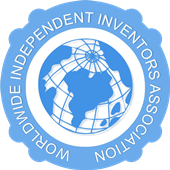- BY Admin
- POSTED IN Articles, Fără categorie
- WITH 0 COMMENTS
- PERMALINK
- STANDARD POST TYPE

The criticism of patents, sometimes associated with the term “anti-patent”, is the complete or partial opposition to prevalent patent laws, and constitutes a particular form of criticism of intellectual property. A patent is a branch of intellectual property covering “industrial property” which is protected by patents or trademarks. Patents cover inventions, including new solutions to technical problems, and industrial design, awarding protection against any use without authorization of the owner. Anti-patent arguments have been advanced with regards to affordable generic anti-AIDS drugs in developing countries and software.
A long standing argument against patents is that they may hinder innovation and give rise to “troll” entities. A holding company, pejoratively known as a “patent troll”, owns a portfolio of patents, and sues others for infringement of these patents while doing little to develop the technology itself.
Medicine
Recently anti-patent arguments have been advanced with regards to HIV and AIDS drugs. Governments and companies in Brazil, India, Thailand and Uganda have started to challenge patents on medicine, arguing that human lives are more important than patents, copyright, international trade laws, and the economic interest of the pharmaceutical industry. Anti-retroviral therapy has long been unaffordable for people suffering from HIV/AIDS in developing countries, and proponents of generic antiviral drugs argue that the human need justifies the breach of patent law. When the Thai Government Pharmaceutical Organization started producing generic antiviral drugs in March 2002 the cost of a monthly treatment for one person plummeted from $500-$750 to $30, hence making treatment more affordable. In response the US government placed Thailand on the list of “copyright violators”. In 2007 the government of Brazil declared Merck’s efavirenz anti-retroviral drug a “public interest” medicine, and challenged Merck to negotiate lower prices with the government or have Brazil strip the patent by issuing a compulsory license.
It is reported that Ghana, Tanzania, the Democratic Republic of Congo and Ethiopia have similar plans to produce generic antiviral drugs. Western pharmaceutical companies initially responded with legal challenges, but some have now promised to introduce alternative pricing structures for developing countries and NGOs.
Campaigns for affordable access to medicines, such as Oxfam, argue that developing countries are dependent on foreign pharmaceutical companies. Quoting a recent World Health Organisation report on intellectual property and public health Trevor Jones, director of research and development at the Welcome Foundation, argues that prices of medicines is rarely set by patents and copyright. He argues that “Companies set prices largely on the willingness/ability to pay, also taking into account the country, disease and regulation.”
Under World Trade Organization (WTO) rules, a developing country has options for obtaining needed medications under compulsory licensing or importation of cheaper versions of the drugs, even before patent expiration. In July 2008 Nobel Prize-winning scientist Sir John Sulston criticised the “moral corruption” of the medical industry. Amongst others Sulston said that the world is at a crisis point in terms of getting medicines to sick people, particularly in the developing world. Sulston called for an international biomedical treaty to clear up issues over patents and intellectual property.
In response to these criticisms against pharmaceutical patents it has been pointed out that less than 5% of medicines on the WHO’s essential drugs list are subject to patent protection and that countries who believe that intellectual property is impeding health care may not be aware that the medicines in question, particularly for HIV/AIDS related drugs, are not patented in their country. Also, the pharmaceutical industry has contributed US$2 billion in healthcare efforts in developing countries, providing HIV/AIDS drugs at lower cost or even free of charge in certain countries and has used differential pricing and parallel imports as a means to provide medication to the poor. Other groups are investigating ways in which social inclusion and equitable distribution of research and development findings can be obtained within the existing intellectual property framework, although these efforts have received less exposure.




